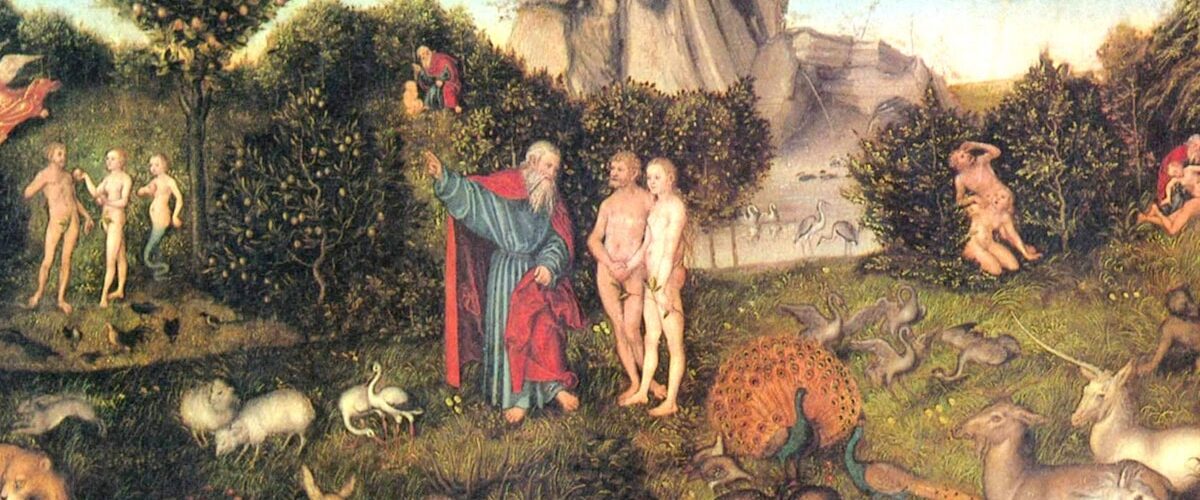There are several lessons that can be taken from our readings for the Tenth Sunday in Ordinary Time, but the one that stands out in my mind is the one that demonstrates a failure in life that we all experience at times, our failure to accept the responsibility for our mistakes and failures.
In our first reading, both Adam and Eve fail to take responsibility for their actions. Adam blames his failure on Eve saying, “The woman whom you put here with me, she gave me fruit from the tree, and so I ate it.” (Genesis 3:12) And Eve blames the snake. She says, “The serpent tricked me into it, so I ate it.” (Genesis 3:13)
The tendency to blame something or someone else for our mistakes appears to be part of the human condition for many of us. I say this because we have all been guilty of this at one time or another. For example, we have blamed our mistakes on our age. “I must be getting old,” or “I was too young and didn’t know any better.” Or we blame it on the other guy, “Why don’t you watch where you are going?” And I could go on and on with other examples, but you get the point, at one time or another, we have all failed to accept responsibility for our actions.
There is a name in psychology for this tendency we have of avoiding accepting responsibility. Dr. Linda Sapadin describes it as “Responsibility Deficit Disorder” and notes that we all suffer from this to one degree or another.
We learn very early in life to dodge responsibility and to blame something or someone else for our mistakes. My mother used to tell a story about something that I did when I was about four years old. I was walking between our house and the house next door. As I did so, I saw a cat sitting on the ledge in front of the neighbor’s basement window. Mom says that I picked up a rock and threw it at the cat. The cat moved and the rock hit the neighbor’s window and broke it. Both the neighbor and my mother came running outside to see what had happened; and I reportedly said, “The cat did it. The cat did it.” As I said, we all learn this lesson very early in life.
The story of salvation is the story of Jesus entering our human condition. And Jesus, being fully human and fully divine, has to live and work in the midst of humanity within the circumstances that we humans have created. Jesus made it abundantly clear that his mission and purpose in life was to call all people to Himself, so that we can learn to stand lovingly before Him, and trust Him to transform us and bring something good out of all the things in life that we have either covered up or botched up.
Notice that in our Gospel text, Mark tells us that Jesus’ actions and activities are attracting the attention of a vast crowd of people, so much so that it was becoming impossible for Him even to eat. And even though multitudes are drawn to Him, the Scribes are very suspicious of Jesus. And rather than seeing the power of God made visible by the many signs and wonders, the scribes accuse Jesus of being, “Possessed by Beelzebul.” (Mark 3:22) Even Jesus’ immediate family doesn’t understand. They accuse Him of being, “Out of His mind.” (Mark 3:21)
In spite of being rejected by the scribes, in spite of the lack of understanding demonstrated by Jesus’ immediate family, Jesus is a man of action. He focuses solely on the mission that the Father has given Him, to restore the loving relationship that the Father wishes to have with all of His children, regardless of the fact that most of His children have failed to accept the responsibility for their mistakes and failures at one time or another in their life. Jesus said that we are all children of God, and Jesus clarifies this point by redefining our understanding of the family. He says, “Whoever does the will of God is my brother and sister and mother.” (Mark 3:35)
All of Sacred Scripture reminds us of how precious each and every one of us is in the eyes of our Heavenly Father. We need not be fearful of our many failures, or afraid to admit to our many mistakes, because to live is to learn. It is said that Thomas Alva Edison had as many as ten thousand failures in his attempt to create a practical light bulb. When questioned about these failures, Edison replied by saying, “I have not failed. I’ve just found 10,000 ways that won’t work.”
By our experiences in life, we can all admit to the fact that we have all discovered many ways that didn’t work out so well. We simply need to learn to say two small words, “I’m sorry”, and stop hiding behind the masks that we have created and be free to be all that God created us to be. For we are all sons and daughters of our Heavenly Father; and to Love God is to allow Him to see us and love us just as we are.





























